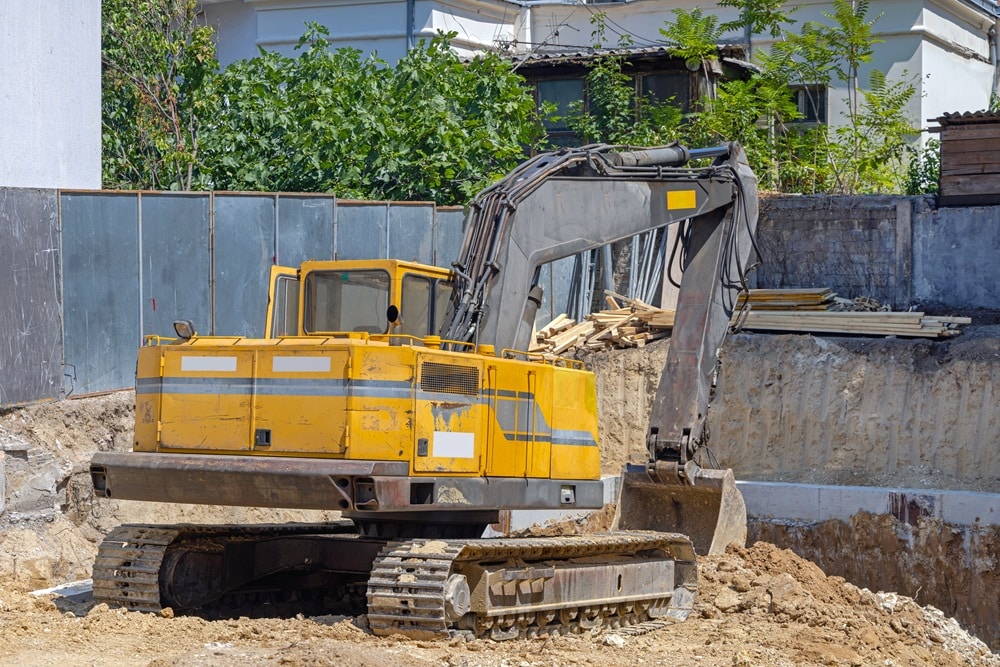Basement excavation is a fundamental part of many construction projects, adding valuable square footage to homes. Whether you’re a homeowner considering a renovation or a construction professional looking to expand your expertise, understanding the intricacies of basement excavation is crucial. This blog will guide you through the purpose and process, from initial planning to the final touches.
The Basement Excavation Process
The Pre-Excavation Phase
Assessing Feasibility
Before you start digging, assess whether your property is suitable for a basement. Soil type, water table level, and existing foundation conditions all play a vital role. A professional assessment can save you time and money in the long run.
Legal Considerations
It’s essential to understand local building codes and regulations. Permits are usually required, and failure to obtain them can lead to costly delays. Consult with local authorities to ensure you meet all legal requirements.
Planning the Project
Effective planning involves more than just the physical work. You’ll need to consider timelines, budgets, and potential challenges. A detailed plan can help you stay on track and avoid surprises.
Excavation Equipment and Techniques
Overview of Tools
Different types of equipment are used for basement excavation, each suited for specific tasks. Common tools include backhoes, excavators, and skid steer loaders. Understanding their functions can help you choose the right equipment for your project.
Techniques Used
Two primary techniques are used in basement excavation—open-cut and trenching. Open-cut is ideal for larger areas, while trenching is better for narrow, confined spaces. Each method has its own set of advantages and drawbacks.
Advanced Methods
For more complex projects, advanced techniques like underpinning and shoring may be required. These methods provide additional support to existing structures, ensuring safety and stability during excavation.
Safety Precautions and Environmental Impact
Ensuring a Safe Excavation
Safety should always be a top priority. Make sure to follow OSHA guidelines and use appropriate protective gear. Regular safety checks can prevent accidents and ensure a smooth operation.
Minimizing Environmental Impact
Excavation can have significant environmental impacts, including soil erosion and habitat disruption. Implementing sustainable practices, such as proper waste disposal and erosion control measures, can mitigate these effects.
Dealing with Hazards
Unexpected hazards like underground utilities or contaminated soil can pose serious risks. Conduct thorough site surveys and have contingency plans in place to address any issues that arise.
Post-Excavation Steps
Waterproofing the Basement
Once the excavation is complete, the next step is waterproofing. This involves applying sealants and installing drainage systems to prevent water infiltration, which can cause structural damage and mold growth.
Structural Reinforcement
Ensuring that the new basement structure is solid and secure is crucial. This may involve adding support beams, reinforcing walls, and using high-strength concrete. Proper reinforcement guarantees long-term stability.
Finishing Touches
The final step includes finishing work like flooring, walls, and ceilings. Depending on your plans, this could range from basic functional spaces to fully furnished living areas. Quality finishing adds value and comfort to the basement.
Cost Analysis and Budgeting
Several factors can influence the cost of basement excavation, including soil conditions, depth, and complexity of the project. A detailed cost analysis can help you budget effectively and avoid overspending.
Setting a realistic budget involves accounting for all potential expenses, from permits and labor to materials and unforeseen issues. Regular financial reviews can keep your project within budget.
While basement excavation can be costly, it often offers a good return on investment (ROI). Additional living space can increase your property’s value, making it a worthwhile endeavor.
Basement Excavation in Prineville, Bend, and Redmond, Oregon
Basement excavation is a complex but rewarding project that can add significant value to any home. By understanding the various phases, from initial planning to final touches, you can ensure a successful outcome. Whether you’re a homeowner or a construction professional, these guidelines will help you navigate the process efficiently.
For personalized advice and expert assistance, consider consulting with Bartlett Excavation and Paving. You can reach us online or by phone at (458) 292-6988.

